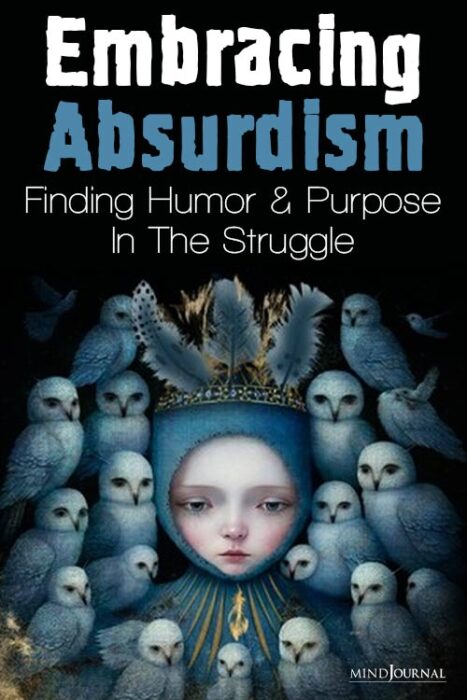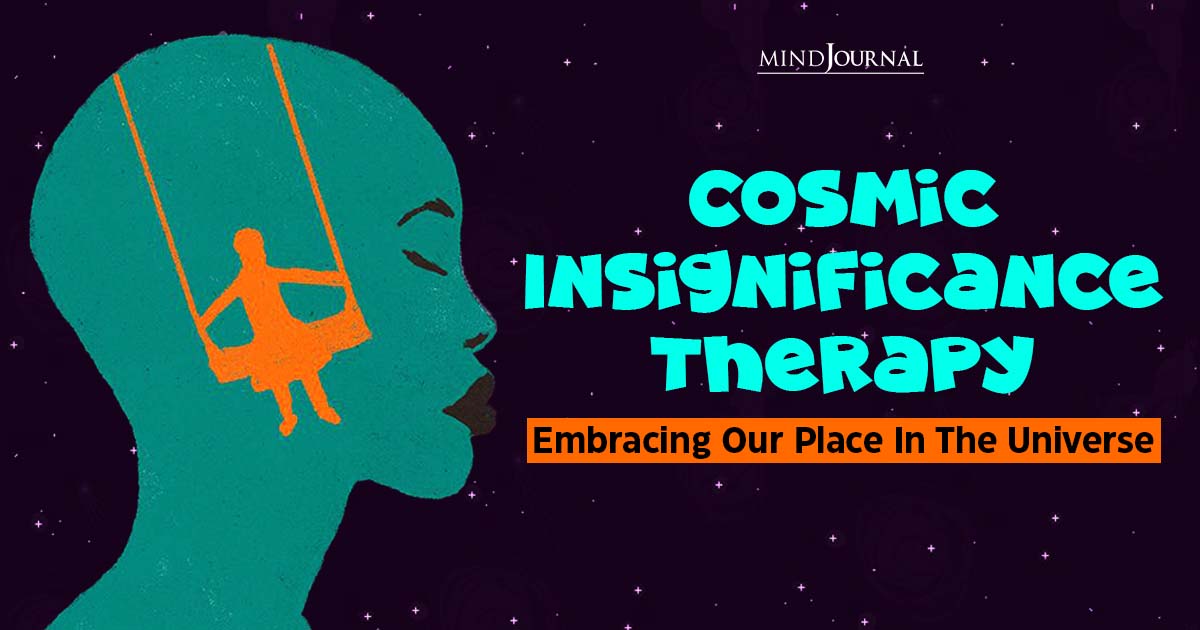In a world where searching for meaning seems futile, absurdism offers a unique perspective. Embracing the inherent absurdity of life can be liberating. Let’s explore absurdism meaning and practical ways to embrace it.
Life can be absurd. We are born into a world that makes little sense, with no clear purpose or meaning. We spend our lives searching for meaning, but often come up empty-handed.
It’s a frustrating and confusing experience, and one that can lead many to despair. But there is another way to approach this absurdity: Absurdism philosophy.
What is absurdism?
Absurdism meaning: Absurdism is a philosophical movement that acknowledges the inherent meaninglessness of life, and encourages individuals to find joy and freedom in the struggle by embracing the absurdity of existence.
Absurdism philosophy emerged in the mid-20th century. It is often associated with the works of Albert Camus and his novel “The Stranger.” At its core, absurdism meaning is the belief that the universe is inherently absurd, and that attempts to find meaning or purpose in it are ultimately futile.
Absurdism definition suggests that human beings are constantly searching for meaning and purpose in a world that has none. This search is often futile, leading to frustration and despair.
Related: What Is The Point Of Life? The Answer Is Not What You May Think It Is
But absurdist philosophy encourages individuals to embrace the absurdity of life, reject traditional notions of purpose and meaning and find joy and freedom in the very fact that life is inherently meaningless.
According to the absurdism definition, it also encourages individuals to create their own meaning and purpose in life, based on their own individual experiences and desires. By rejecting traditional notions of purpose and meaning, individuals are free to create their own, based on what is truly important to them.

Absurdism examples
Absurdism can be found in many aspects of life, from literature and art to everyday experiences.
Some absurdism examples in literature include –
- Albert Camus’ “The Stranger”
- Samuel Beckett’s “Waiting for Godot”
- Franz Kafka’s “The Metamorphosis”
For absurdism examples in visual art, the work of Salvador Dali often embodies absurdism with its surreal and dreamlike imagery.
In everyday life, absurdism examples can be found in situations that seem nonsensical or irrational, such as getting stuck in traffic for hours or dealing with bureaucracy that makes no sense.
Embracing the absurdity of these situations and finding joy in the struggle can be a practical application of absurdism in daily life.
Embracing the absurd
At first glance, absurdism meaning may seem like a bleak and pessimistic philosophy. After all, if life is truly absurd, what’s the point of anything?
But absurdism is not about giving up on life or resigning oneself to a meaningless existence. Rather, it is about embracing the absurdity of life and finding meaning and purpose in that very absurdity.
One of the key tenets of absurdist philosophy is the idea that human beings are constantly searching for meaning and purpose in a world that has none. This search is often futile, leading to frustration and despair.
But absurdism suggests that we can find meaning and purpose in the very act of searching. By embracing the absurdity of our existence, we can free ourselves from the constraints of traditional notions of purpose and meaning, and create our own.
Finding meaning in the struggle
As per the absurdism definition, this idea is embodied in Albert Camus’ famous quote –
“The struggle itself toward the heights is enough to fill a man’s heart. One must imagine Sisyphus happy.”
Sisyphus, in Greek mythology, was condemned by the gods to spend eternity pushing a boulder up a hill, only to have it roll back down again. This task is inherently meaningless, but Camus suggests that Sisyphus can find happiness in the struggle itself.
By embracing the absurdity of his situation, Sisyphus can find joy and purpose in the very act of pushing the boulder up the hill, even though he knows it will never reach the top.
Related: Can You Ever Be ‘Okay’ Again Even After You’ve Lost Everything? 5 Signs
Creating our own meaning
Another key aspect of absurdist philosophy is the idea that we must create our own meaning in life. If the universe is inherently absurd, then traditional notions of meaning and purpose are meaningless.
We must create our own meaning, based on our own individual experiences and desires. This can be a daunting task, but it can also be incredibly liberating.
By rejecting the idea that there is a predetermined meaning or purpose to life, we are free to create our own, based on what is truly important to us.
Absurdism vs nihilism
Absurdism and nihilism are two philosophical movements that share some similarities but also have some important differences. Let’s dive into absurdism vs nihilism –
Nihilism is the belief that life is inherently without meaning or value, and that all moral and ethical principles are baseless.
Absurdism, on the other hand, acknowledges the inherent meaninglessness of life, but encourages individuals to embrace the absurdity of existence and find joy and freedom in the struggle.
So what is absurdism vs nihilism? While nihilism can lead to a sense of hopelessness and despair, absurdism offers a more optimistic and liberating perspective on the human experience.
Absurdism vs existentialism
Now that we have understood absurdism vs nihilism, let’s delve into absurdism vs existentialism.
Both absurdism and existentialism are similar philosophical concepts and it can be easy to get confused between the two. However, understanding absurdism vs existentialism can help us identify some important differences.
Both movements acknowledge the inherent meaninglessness of life, but while absurdism encourages individuals to embrace the absurdity of existence and find joy and freedom in the struggle, existentialism emphasizes the importance of creating one’s own meaning and purpose in life.
Existentialism also emphasizes the individual’s freedom and responsibility to make choices and take actions that determine their own destiny. In contrast, absurdism emphasizes the freedom that comes from accepting the inherent meaninglessness of life and rejecting traditional notions of purpose and meaning.
So now we know about absurdism vs existentialism and have a better understanding of this philosophical concept. But is it truly that important?
Importance of absurdism philosophy
The importance of absurdism philosophy lies in its ability to offer a unique and liberating perspective on life and the human experience. By acknowledging the inherent meaninglessness of life, absurdism encourages individuals to reject traditional notions of purpose and meaning and create their own path in life.
Absurdism meaning and philosophy can be incredibly liberating, as it frees individuals from the constraints of societal expectations and allows them to define success and fulfillment on their own terms.
Absurdist philosophy also encourages individuals to find joy and purpose in the struggle itself, rather than focusing solely on the outcome. This can be especially valuable in situations where the outcome is uncertain or unlikely, as it allows individuals to find meaning and purpose in the journey, regardless of the end result.
In a world that often feels confusing and overwhelming, absurdism definition offers a way to embrace the inherent joy that lies in the struggle. It is a philosophy that can be challenging but also deeply rewarding for those who are willing to embrace it.
Related: Hermeticism: How This Ancient Egyptian-Greek Philosophy Can Improve Your Life

How to embrace absurdism in daily life
Once you understand absurdism meaning, you can learn to adopt it in your life. Embracing absurdism can be a challenging but rewarding philosophy that can help individuals find meaning in the absurdity of life.
Here are some practical ways to embrace absurdism in everyday life:
1. Embrace the absurdity
The first step to embracing absurdism is to accept that life is inherently meaningless. Rather than fighting against this reality, embrace the inherent absurdity of life.
When you encounter situations that seem absurd or meaningless, try to see the humor in them and embrace the absurdity.
2. Find happiness in the struggle
As mentioned earlier, absurdism emphasizes finding joy and purpose in the struggle itself. This means that even if the outcome of a situation is uncertain or unlikely, enjoy the journey and the process of getting there.
Find joy in the struggle and in the act of pushing forward, even if the end result is unclear.
3. Create your own meaning
Absurdism encourages individuals to create their own meaning and purpose in life. This means identifying what is truly important to you and creating your own goals and aspirations.
Instead of conforming to traditional societal expectations or predetermined notions of success, create your own path and define what success means to you.
4. Live in the moment
Absurdism encourages individuals to live in the present moment and enjoy the small pleasures in life. Instead of always focusing on the future or dwelling on the past, embrace the present moment, practice mindfulness and find joy in the little things.
5. Embrace your freedom
Absurdism emphasizes the freedom that comes with embracing the inherent absurdity of life.
This means freeing yourself from the constraints of traditional notions of purpose and meaning, and embracing the freedom to create your own path in life. Embrace your freedom and enjoy the journey, even if the destination is uncertain.
By taking these steps, you can begin to embrace the philosophy of absurdism in your daily lives and find a unique and rewarding perspective on the human experience.
Benefits of absurdism
Embracing absurdism and understanding absurdism meaning can offer a range of benefits for individuals, including:
1. Increased freedom
By rejecting traditional notions of purpose and meaning, individuals are free to create their own path in life and define success and fulfillment on their own terms.
2. Greater resilience
Absurdism encourages individuals to find joy and purpose in the struggle itself, rather than focusing solely on the outcome. This can help individuals develop greater resilience and perseverance, even in the face of uncertain or difficult situations.
3. Greater sense of humor
Embracing the absurdity of life can help individuals develop a greater sense of humor and find happiness in situations that may seem frustrating or confusing.
4. Greater sense of purpose
By creating their own meaning and purpose, individuals can develop a greater sense of purpose and fulfillment in life, even in the absence of traditional notions of purpose and meaning.
5. Increased creativity
Absurdism encourages individuals to think outside of traditional frameworks and create their own path in life. This can lead to increased creativity and innovation in all areas of life.
Related: Philosophy 101: 10 Philosophical Concepts To Help You Navigate Life’s Complexities
Takeaway
In a world that often feels confusing and overwhelming, absurdism offers a way to find joy and freedom in the struggle. By embracing the inherent absurdity of life and creating their own path, individuals can develop a greater sense of purpose and fulfillment, and find humor and joy in the everyday moments of life.
By rejecting traditional notions of purpose and meaning, and creating our own, we can find a sense of purpose and fulfillment that is uniquely our own.
While it may not be a philosophy for everyone, those who are willing to take the leap into absurdism may find that it offers a unique and liberating perspective on life and the human experience.









Leave a Reply
You must be logged in to post a comment.